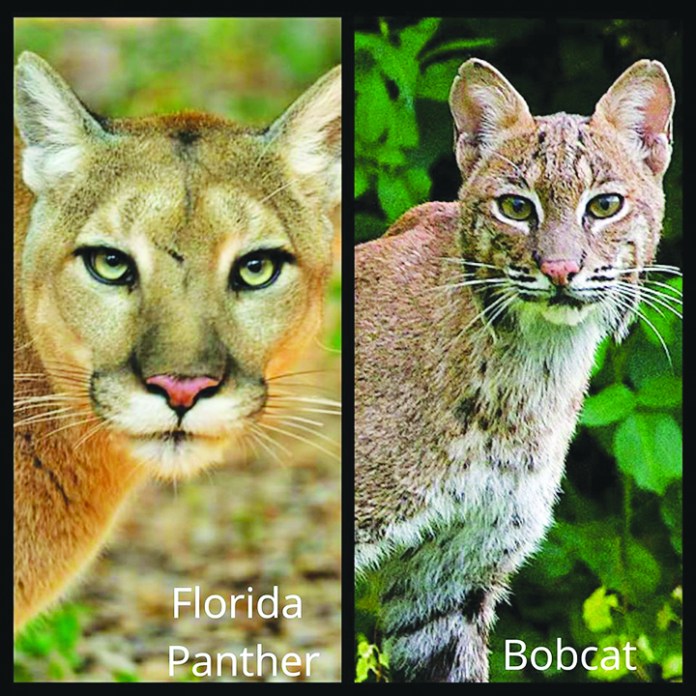By Ali Dunstan
Did you know that Florida is home to two native species of big cats? Both the critically endangered Florida panther and the more common bobcat can be found throughout the state.
Florida panthers are a smaller sized cougar, averaging around 75-115 pounds. Spanning the entire state, the elusive panther is mostly concentrated in the southern regions of Florida. Individual panthers can disperse hundreds of miles and have been occasionally spotted as they roam looking for a mate or a new area to inhabit.
These cougars are solitary, territorial animals and encompass a home range of 75-150 square miles each, preferring mixed swamp and prairie grassland habitat rich with prey. Florida panthers pose little threat to humans as they are extremely rare to encounter and hunt primarily on wild boars, deer, raccoons and rabbits.
Human development, loss of habitat, pollution and hunting have negatively impacted the population of panthers and have almost eliminated their presence entirely. With estimates of only 100-160 remaining panthers left in the wild, these mammals are listed as an endangered species.
Many conservation efforts are in place to study, monitor and restore the population of Florida panthers as their survival is critical to the health of our ecosystem. In contrast, bobcats are widely distributed, abundant and thriving throughout the state.
Often mistaken for a Florida panther, these stealthy cats average around 30-40 pounds and have distinct white spots on the back of their ears. Contrary to popular belief, both species have tails, with the panther having one that can touch the ground and the bobcat’s being much shorter.
Bobcats are extremely adaptable and are year-round residents of rural, urban and suburban areas. They prefer deep forest, swamps and hammock-lands with dense palmetto shrub areas to live in. Bobcats hunt on small mammals, generally at night, but can be observed commonly in daylight hours too.
Apex predators provide a balance to our ecosystem by keeping many other populations in check and regulating the food chain.
The Florida panther especially needs our help to keep their habitat present and viable. Panther conservation requires public support and with any hope we can keep these important animals around for many years to come.



